Beginning in 2024/25, the non-taxpayer mid-level exception, room exception, and bi-annual exception can all be used to acquire players via waiver claims, giving teams new ways to land other clubs’ roster casualties whose salaries don’t exceed the MLE (approximately $12.8MM in ’24/25)
[RELATED: Values Of 2024/25 Mid-Level, Bi-Annual Exceptions]
In the past, in order to claim a player off waivers, a team generally had to be able to fit the player’s entire salary into cap room, a traded player exception, or a disabled player exception.
Despite the new options available to teams eyeing a player who has recently been cut, waiver claims will likely continue to be infrequent going forward. Once the draft and the early part of the free agent period have passed, many teams around the NBA aren’t in position to take on additional salary or don’t have excess roster spots available for newcomers. Plus, most of the players who end up on waivers are being cut because their current contracts aren’t considered great values.
With all that in mind, it’s perhaps no surprise that the players most frequently claimed on waivers are those on minimum-salary deals, since any club is eligible to place a claim on those players using the minimum salary exception.
Even for minimum-salary claims, there are some caveats — the minimum salary exception can only be used to sign players for up to two years, so the same rules apply to waiver claims. If a player signed a three-year, minimum salary contract, he can’t be claimed using the minimum salary exception, even if he’s in the final year of his deal. And if a player received more than the minimum salary in an earlier season, he can’t be claimed using the minimum salary exception.
Essentially, the minimum salary exception can only be used to claim a player whose current contract could have been signed using the minimum salary exception.
Taking into account all the factors that reduce the odds of a waiver claim, it makes sense that nearly all of the players who get released ultimately clear waivers. The 2021/22 and ’22/23 league years each featured just six waiver claims, for instance, while there were just three in ’23/24.
Despite how infrequent they are, we still want to track all the waiver claims that take place during the 2024/25 league year, since you never know which claim may end up being crucial. Last season, for instance, the Pelicans claimed Matt Ryan off waivers from Minnesota in October. Ryan ended up spending the entire year in New Orleans and remains on the team’s roster heading into training camp in 2024.
We’ll track this year’s waiver claims in the space below, updating the list throughout the season to include the latest moves. Here’s the current list:
- Pistons claim Paul Reed from Sixers (July 9) (story)
- Reed enjoyed a career year in 2023/24, setting new personal highs in points (7.3), rebounds (6.0), blocks (1.0), and minutes (19.4) per game, while appearing in all 82 contests and making 24 starts for the Sixers. But his $7,723,000 salary, which was fully non-guaranteed, became expendable when Philadelphia needed to create a little extra cap room to finalize its signings of Paul George, Caleb Martin, and Andre Drummond. The Pistons, one of the NBA’s few teams with cap space still remaining, used some of that space to claim Reed. The big man will provide frontcourt depth in Detroit, still has some upside, and comes with little risk, since his full-season salary doesn’t become guaranteed unless he remains under contract through January 7.
- Pelicans claim Trey Jemison from Grizzlies (July 26) (story)
- A year after claiming Ryan and having him fill one of their two-way slots, the Pelicans are looking to replicate that success with Jemison, whose two-way deal with Memphis – signed in February – included a second year. Jemison played pretty well in 23 games (14 starts) for Memphis last season, averaging 7.4 points, 5.8 rebounds, and 1.2 blocks in 24.9 minutes per night. The Grizzlies decided to waive him when they signed Jay Huff to a two-way contract, but Jemison will remain in the Southwest and could play a role for a New Orleans team that lost big men Jonas Valanciunas and Larry Nance over the summer. It’s worth noting that, like minimum-salary contracts, two-way deals can be claimed off waivers without requiring cap room or any special exceptions.

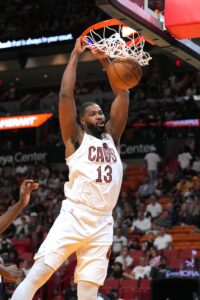 Thompson, whose signing was also announced in a
Thompson, whose signing was also announced in a 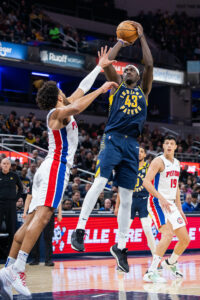 Currently,
Currently, 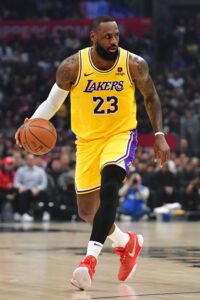
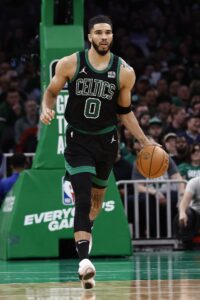
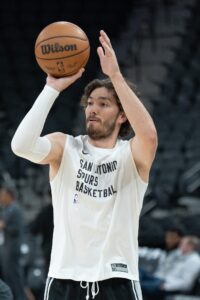 “It was a long process, but, obviously, it was an easy choice for me,” Osman said of joining the Greek club. “I have known Panathinaikos for a lot of years. I played against them as a kid. And Ergin [Ataman] was my coach since I was a kid. There were links with other teams, but it was not a really hard choice for me.”
“It was a long process, but, obviously, it was an easy choice for me,” Osman said of joining the Greek club. “I have known Panathinaikos for a lot of years. I played against them as a kid. And Ergin [Ataman] was my coach since I was a kid. There were links with other teams, but it was not a really hard choice for me.”